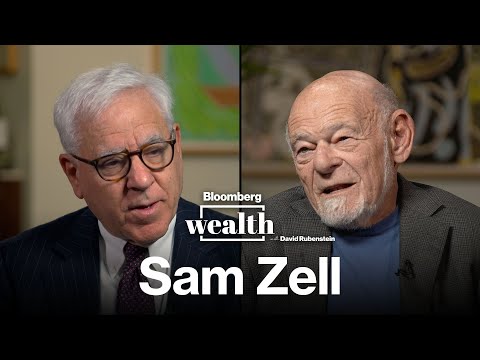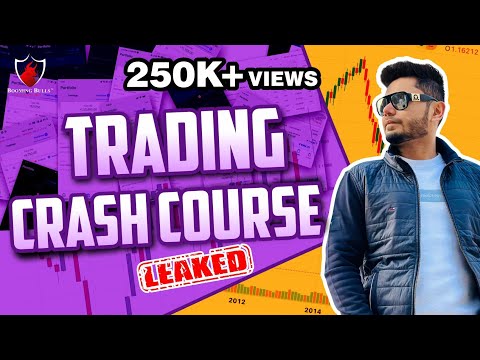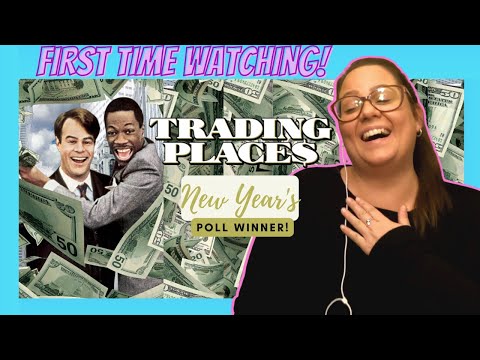Bloomberg Wealth: Sam Zell

I was very very successful at listening to my own song. I'm not trying to write a dead horse and I'm perfectly happy to go in every different direction. I think being a lawyer or going to law school is an extraordinarily valuable thing. Even though I can tell you I hated every minute of it. When hearing the name Sam Zell it's almost certain you think of real estate. You started early teaming up with a frat brother to manage and own hundreds of apartments while studying political science at the University of Michigan. I basically use the four years of being an undergraduate to build a real estate business and build other businesses. And I had a great time. Zell went
big into office buildings and then got out by selling Equity Office Properties Trust in 2006 to Blackstone for thirty nine billion dollars. At the time it was the biggest leveraged buyout ever. It was an easy decision for me even though it was my baby with some might start from scratch. Now Zell focuses on residential real estate in major urban centers. He's over 50 years in the business has him critical of the economic road ahead. Some of the policies implemented flooding the market market with money are coming back to bite us. That's the typical straight talk. Zell is known for. So was the book he wrote. A few years ago he called it. Am I being too subtle. Straight talk from a business rebel.
Rarely. I think anybody leave the meeting with me and say what do you think he meant. So as we talk the economy the United States seems to be shrinking a little bit. Our stock market is not in good shape. I would think people would say and the real estate market may not be in such wonderful shape. So are you worried now that the economy is heading into a recession. And is that making you feel not so bad because you can buy things at the bottom of the market now. Well I kid people and say that the stock market can't go down because the stock market never goes down when I'm liquidity. But I think liquidity is the theme of what's going on out there.
I mean unfortunately I think that some of the policies implemented flooding the market market with money are coming back to bite us. And I think that that we have to reduce that liquidity. And in the process we've created significant inflation that I think is only control by raising interest rates and maybe putting it into recession. We're not in a recession yet in your view. No no. And you've seen this picture before where governments say we're going to raise interest rates get rid of inflation that usually produces either stagflation or a recession. So you think that's
likely or the Fed chickens at that. You know I mean unfortunately I've only been around this business for 50 years. But in that 50 years I've only had one Fed president whoever he said and did what he when he said. And that was Volcker. Every other you know Greenspan and all the rest of them have all talked a good game. But when it really came depressing it didn't
press it. Let's suppose the chairman of the Fed Jay Powell called you and said Sam you've been around a long time. What should I do. Should I keep increasing interest rates to get rid of inflation or should I worry that that will produce a recession. What would you advise him to do now. I'm advising him right now to raise interest rates significantly. I think that is as big as 75 basis points sounds. I think that they could easily raise interest rates one and a quarter. I think that you know what we have to do is we have to break the inflation mentality now. We've embedded in people an expectation
of inflation that goes into everybody's pricing goes in everybody's plan. And that's not healthy for the country. So let's talk about your background a moment. So you grew up in Chicago. Yes. And your parents were immigrants from Poland. Yes. So when you grew up did you say I want to be the best real estate investor in the world or what did you want to be when you were. A little while after I got over wanting to be a fireman. I always thought I was going to be a lawyer. And to be honest with you I didn't really understand what a lawyer did. But that maybe you know like there's this classic story about you know the definition of a Jewish boy who is one who can't stand the sight of blood in the same manner. I never thought it was even remotely interested in medicine. And I figured the law was a great card to play no matter what I ended up doing.
So you grew up in Chicago but you went to University of Michigan an excellent school. Did you know what you wanted to study there or what did you want that you wanted to get ready to go to law school. ISE. Yeah I mean I majored in political science but I was never an academic. And. And that I was always a good enough academic to get from here to there. So and I want to go to law
school I got seven days but I get very many days before that. And then I basically use the four years of being an undergraduate to build a real estate business and build other businesses. And I just had a great time. So you were doing some real estate on the side while you were in college and then you went through university Michigan
Law School and to please your mother or father you've said I'm going to go to law school. But you weren't that interesting being a lawyer. No never a matter of fact. I ended up graduating and becoming a lawyer and I practiced for four days. Four days ISE. I didn't realize you practice that long for day four days. So then the morning of the fifth day I went to see the senior partner and as only a 24 year old could do. I looked at him. I said I just don't think this is a good use of my time. He said OK. There's the door. Actually he said. What are you going to do. And I said Go back to doing golf like I did when I
was in law school and in the real estate business in Arabic. And so he said why don't you stay here and we'll do the legal work and we'll invest in your deals. And so that's what we did for a year. So you started building a real estate business deal by deal deal by deal. And basically did you focus on office or industrial or restarted in the multi-family sector. And I think that you know I always had I started out thinking that I was going to be a developer. I developed a couple of projects and I
got cured and that and decided that you know the way to make money in the real estate business and the way to create things was to take on project that somebody else built but that the risk reward for being in the development business. I never saw it as a real estate investor. You were doing quite well but then you decided to do things outside of real estate. Yeah I guess your theory was if I'm good in real estate I can do non real estate also. Well in the early 80s my partner Bob and I sat down and talked about it and we really we really didn't like that in the national commercial real estate market that we'd been 100 percent competing. And up until that point and we basically decided that the reason we've been successful is that we were
basically good businessmen and that we understand supply and demand and market share and margins and leverage. And those were all skills that were equally relevant outside of real estate as long as you didn't get to the extreme. So we didn't do rocket engines we didn't do biotech but using the standard that whenever we bought we could literally run. And that's what we used as a standard allowed us to diversify. And eventually today we're probably 70 percent non real estate versus 100 percent real estate. Now the person you mentioned Bob was your partner Bob Lurie who was a classmate at University of Michigan. Yes. And he passed away a number of years ago 1990.
And so you kept the business going and you continue to diversify. What would you say is a trait that you and Bob had that enabled you to build this business. Were you smarter than other people harder working. What was it that you said. I really have this skill that enables me to do this and other people can't quite do it quite as well. God I wish I knew the answer to that David. Well you must be smart. You must be. I mean obviously I'm smart enough.
But I think that you know I was very very successful at listening to my own song. I was very capable of ignoring the noise. The number of times people have told me you don't understand is legendary and yet I was comfortable and had that level of self-confidence that allowed me to make the right decisions at the right time. We have an inventory of office space that in some cases is truly obsolete. So the excess of its existence is really a foregone conclusion whether everybody comes back to work or not.
The landlords of office buildings are being swamped by a tidal wave of bad news. Work from home may have been replaced by return to office. But 21 percent of all office visits this year have been for only once a week. In Manhattan blocks of empty offices in the financial district pushed the supply of available space to 90 percent in the first quarter. A record high. And when tenants do look for space the newer buildings are the winners. It's estimated that 30 percent of U.S. office buildings worth one point one trillion dollars are at high risk of becoming obsolete. One oil company's vacant Houston office building sold this year at a sixty seven million dollar loss for the lenders. By one estimate prices for newer amenity field
offices have gained about 15 percent from pre pandemic levels. But smaller older properties are down 20 percent. We'll learn more of the next few months. Leases accounting for about 11 percent of the nation's rented office space expire this year. That could pose a threat to landlords and their bankers. Real estate right now after Covid many people said I'm not coming back to the office and I want to work remotely and so forth. Do you think that's going to mean there's going to be less need for office space in the United States compared to what we had before Covid. Or do you think the population is expanding so much so that eventually we're going to need the. The expense we have now. The question is too simplistic
because what we have is we have an inventory of office space that in some cases is truly obsolete. So the excess of its existence is really a foregone conclusion whether everybody comes back to work or not. And it's indicative of the fact that even in this what I would call an oversupplied office market across the country the new buildings with the new ventilation the new everything are felt. And they still feel very strongly that businesses succeed because they eventually figure out how to communicate and how to share risk and how to share ideas better. I don't think you can motivate by modem and consequently every one of our businesses. We've encouraged people back to work. And in most cases you know we're we're way ahead of everybody else in terms the number of people coming in now. You wrote an article a
number of years ago in which you called yourself the grave dancer. What did you mean by the grave dancer. Well I you know in the in the 70s I was involved in buying up an enormous amount of distressed real estate. What I really did was I created three billion dollars worth of nonrecourse debt at a low rate in an inflationary environment. So in effect the way we took over all that real estate was you know we got you know make a deal with a bank or make a deal with an insurance company. We take over management we stabilize the cash flow. We give them a
mortgage instrument which is all they ever wanted about buying at a lower rate but by creating this gigantic fixed rate pool of capital or a pool of debt when the market changed in that and when inflation occurred you know we saw the devaluation of what that that occurred and that that devaluation benefited us. So what you're known as the great dancer and you shop to buy something are people that say oh this person is the person who knows how to get the lowest price possible and squeezes me the most. Does that hurt you when you're trying to buy something. It ought to. And I think it does initially. But you know I think we put on our pants one leg at a time. We can't extract any more out of anybody. Yes we suffer from knowing the numbers and that. And so therefore in a very frothy market maybe where we're tough to make a deal with. Well let's talk about the most famous real estate deal perhaps you ever did. You built a company called EOP Equity Office Properties and you're
buying real estate office properties for many many years. And then somebody came along to you and said I'd like to buy it. And you weren't really interested in selling and then you ultimately sold it. And what is I think the highest price ever. One single real estate transaction about almost 40 billion dollars. So how did that come about. And did were you interested in selling. And did you know that you would time the market exquisitely so well that you sold it pretty much the day the market topped. Well I'd love to take credit for that. I don't I think that philosophically I've run a whole bunch of public companies. I've always felt that the day you quote take the public's money
there's a definition of who you're obligated to when you're investing your own capital in a private situation you're in. You're indebted to yourself the moment you go public and the money you take in public capital. That's the moment in which the public's interest is what should govern your decisions. And so as in all of our companies we do in any of the analysis once a year twice a year. But we're constantly trying to assess what do we think the assets are worth relative to the stock price. And in the case of Equity Office we did that on a regular basis. And. And then all of a sudden somebody came along and offered us a number that was materially higher than our and maybe.
Well the moment that occurred as far as I was concerned I had an obligation to find out and see if the price discovery was there and eventually we made a deal. And that deal with significantly higher than the Navy. And consequently it was an easy decision for me even though it was my baby who some might start from scratch if I wanted to own it forever. I sure kept it private. Your success your failure is how well you've assessed the barriers to entry. Because if there are no barriers to entry then you're vulnerable. From day one. You wrote an autobiography. Effective I think it was entitled Am I being subtle enough for you or something that offend my being
too subtle. Too subtle. OK so that's because you're very blunt and when you tell people what you think. Has that been a problem in getting along in life or are you actually that's been helpful to you. Well I don't look at it quite that way. I look at it differently as saying you know I want to be friends with. I want to have relationships with people who respect what I have to say. I don't necessarily agree with it. But yeah and that's why title the book. Am I being too subtle. Rarely. I think there's anybody leave a meeting with me and say what do you think he meant. And so I take a lot of pride in that in that in this scenario sometimes the people who aren't real comfortable being being confronted with reality. So if the President United States
called you and said Sam you're a legendary investor you have a good feel for the economy. Give me some advice about what I could do to make the economy more robust than it is. What would you say. And do you ever get involved with politicians. That kind of advice. Not very often but sometimes. You know I mean if the president called me today I mean you know my you know my theme is that that you know we're spending too much time and money and all kinds of things that that you know we can't afford and that that you know that the rules of economics haven't been suspended and the United States can't continue to run deficits and maintain our standard of living and maintain the supremacy of the dollar. So if somebody is watching and says I want to be the next Sam Zell I want to be a really smart successful real estate investor and basically build the kind of business empire of the type you've done what would you advise me to do. Go to get a good for her to get a good education to work hard be trained by somebody have a good mentor. What would you say is the key to kind of
building that kind of reputation and record that you have achieved. Isn't the answer all of the above. I advice people for example that I think being a lawyer or going to law school is an extraordinarily valuable thing. Even though I can tell you I hated every minute of it the fact that I trained in the legal system and the fact that I live in a world where the legal system is prevalent and everything I do I've been very successfully encouraged people to go to law school even though they have no interest in practicing law in the same manner. Whatever your specialty whether it's real estate or something else you've got to really be you've got to really be committed. You've got to really to understand what's going on. If you were to say the best investment advice you've ever been given what would you say is the best investment advice somebody ever gave you. I think once you know very early in my career had a candid conversation with somebody about barriers to entry. And I never
really thought of it. But you know I understood the fact that gee a monopoly is better than an hour Gallipoli and certainly better than competition. But I never really understood and put it into fashion. But this conversation I had where he explained to me you know when it's all said and done your success your failure is how well you've assessed the barriers to entry because if there are no barriers to entry then you're vulnerable from day one. If there are barriers to entry depending on what they are and how they play out you can do a much better job of assessing and assessing the opportunity. In your observation what is the most common mistake that the average investor makes selling at the wrong time or buying at the wrong time. I almost can't answer that question without using the word optimism. You know one of Sam's favourite Sam isms is we suffer from knowing
the numbers. I think we manage to kip through to through the tulips for the last 50 years by never allowing ourselves to get swept up in the enthusiasm of wherever the current event might be. And I think by maintaining that level of discipline yeah we made mistakes. That's to be expected. But we've they've all been quote controlling all. No one mistake was ever catastrophic. So when I make a mistake
in the investor world I think about it for the next 10 or 15 or 20 years. I never forget it. Are you able to walk away from those things and just go onto the next thing. Historically that's been the case. I mean I can't help but think about the baseball player that gets paid 30 million dollars a year for getting a hit one out of three times. My job as an investor is to be right a lot more than that but more important not to be wrong. So I assume when we have cocktail parties again you will probably go to some I don't know if you go to cocktail parties or people who ever come up to you and say Sam you're a famous investor. Can you give me any advice. What would you tell that person to do. I do the best they could to extract myself from the conversation. I can talk generically and talk about real stand meant trust it. I think a
very viable investment opportunity for the average person. A lot of other things but I don't ever want to be anybody's guru. So you and I are. You're a couple years older than me but I've reached the age where people do look at me and say Are you still working this hard. You're still investing. And I say yes this is what I know how to do. Do you get this six a lot too. People say why don't you slow down. Well everybody says to me you know when are
you going to retire. I'm sure they ask you that way. The same thing and I look at them and I say retire from what. I get up every morning and I read five newspapers and I and I'm intrigued by what I'm doing and I'm I'm intrigued by the things that are changing around me and how I need to adjust to what's going on on an ongoing basis. I consider that to be a blessing.
2022-07-20 04:19


